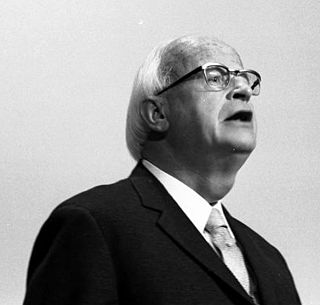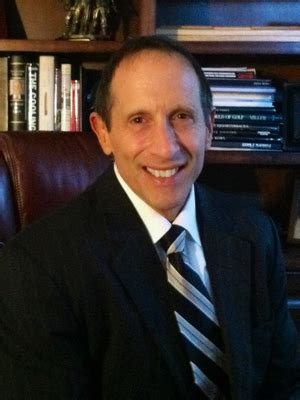Top 197 Theologians Quotes & Sayings - Page 4
Explore popular Theologians quotes.
Last updated on December 21, 2024.
Some critics thought the ontology and theory of qualities absurd. No one had ever seen these little atoms, and furthermore, how could their mere arrangement produce a noisy, colourful, world in which day followed night and animals generated their own kind? Instead of a world created, cared, for and supervised by supernatural persons, the Epicureans appeared to the theologians to be assigning everything to chance. The latter were appalled by Lucretius's view of religion as cruel and oppressive and by the Epicurean insistence that death is the end of all experience.
Theology is not a private subject for theologians only. Nor is it a private subject for professors. Fortunately, there have always been pastors who have understood more about theology than most professors. Nor is theology a private subject of study for pastors. Fortunately, there have repeatedly been congregation members, and often whole congregations, who have pursued theology energetically while their pastors were theological infants or barbarians. Theology is a matter for the Church.
On the Continent, every attempt to substitute a lighter punishment for death was fiercely denounced as a direct violation of the Divine law. Indeed, some persons went so far as to question the lawfulness of strangling the witch before she was burnt. Her crime, they said, was treason against the Almighty, and therefore to punish it by any but the most agonizing deaths was an act of disrespect to Him. Besides, the penalty in the Levitical code was stoning, and stoning had been pronounced by the Jewish theologians to be a still more painful death than the stake.
"Did God have a mother?" Children, when told that God made the heavens and the earth, innocently ask whether God had a mother. This deceptively simple question has stumped the elders of the church and embarrassed the finest theologians, precipitating some of the thorniest theological debates over the centuries. All the great religions have elaborate mythologies surrounding the divine act of Creation, but none of them adequately confronts the logical paradoxes inherent in the question that even children ask.
Theologians and philosophers, who make God the creator of Nature and the architect of the Universe, reveal Him to us as an illogical and unbalanced Being. They declare He is benevolent because they are afraid of Him, but they are forced to admit the truth that His ways are vicious and beyond understanding. They attribute a malignity to Him seldom to be found in any human being. And that is how they get human beings to worship Him. For our miserable species would never lavish worship on a just and benevolent God from whom they had nothing to fear.
The raw fruits of the earth were made for human sustenance. Even the white tails of rabbits, according to some theologians, have a purpose, namely to make it easier for sportsmen to shoot them. There are, it is true, some inconveniences: lions and tigers are too fierce, the summer is too hot, and the winter too cold. But these things only began after Adam ate the apple; I before that, all animals were vegetarians, and the season was always spring. If only Adam had been content with peaches and nectarines, grapes and pears and pineapples, these blessings would still be ours.
Theologians talk about a prevenient grace that precedes grace itself and allows us to accept it. I think there must also be a prevenient courage that allows us to be brave - that is, to acknowledge that there is more beauty than our eyes can bear, that precious things have been put into our hands and to do nothing to honor them is to do great harm. And therefore, this courage allows us, as the old men said, to make ourselves useful. It allows us to be generous, which is another way of saying exactly the same thing.
It is also possible to say precisely why. Truth seduces us very easily into a kind of joy of possession: I have comprehended this and that, learned it, understood it. Knowledge is power. I am therefore more than the other man who does not know this and that. I have greater possibilities and also greater temptations. Anyone who deals with truth - as we theologians certainly do - succumbs all too easily to the psychology of the possessor. But love is the opposite of the will to possess. It is self-giving. It boasteth not itself, but humbleth itself.
I think it's just yet another piece to cause confusion and I think that the 'so-called scientific debate' is very silly now - It's like a bunch of theologians arguing over how many angels you can stick on the head of a needle. When you've got a side that changes from global warming, global warming, global warming to climate change, which is intuitive - the climate has always been changing since the beginning of time - and then just begins to claim every answer is the correct answer, you often stand back, and I don't care who you are, you have to question as to what the real motive is in this.
I don't like realism. We already know the real facts about li[fe], most of the basic facts. I'm not interested in repeating what we already know. We know about sex, about violence, about murder, about war. All these things, by the time we're 18, we're up to here. From there on we need interpreters. We need poets. We need philosophers. We need theologians, who take the same basic facts and work with them and help us make do with those facts. Facts alone are not enough. It's interpretation.
Christians believe that God created man, and humanists believe that man invented God. But whichever way you look at it, we're brothers and sisters. Either we're brothers and sisters because we're children of God, or because we've banded together to invent God. So the ethics of the humanist and the ethics of some Christians are very similar. And we don't want to create divisions between humanists and Liberation Theologians, any more than we want between the New Worker and the Trots. It's not helpful.
Theologians will protest that the story of Abraham sacrificing Issac should not be taken as literal fact. And the appropriate response is twofold: first, many, many people even to this day, do take the whole of their Scripture to be literal fact, and they have a great deal of political power over the rest of us, especially in the United States and in the Islamic world. Second, if not of literal fact, how should we take the story? As an alagory? Then an alagory for what? Surely, nothing praiseworthy. As a moral lesson? But what kind of morals could one derive from this appalling story?
Many statements about God are confidently made by theologians on grounds that today at least sound specious. Thomas Aquinas claimed to prove that God cannot make another God, or commit suicide, or make a man without a soul, or even make a triangle whose interior angles do not equal 180 degrees. But Bolyai and Lobachevsky were able to accomplish this last feat (on a curved surface) in the nineteenth century, and they were not even approximately gods.
Imitation is very easy, and the whole culture and society depends on imitation. Everybody is telling you how to behave, and whatsoever they are teaching you is nothing but imitation. Religious people - the so-called religious people, the priests, the theologians - they are also teaching you, `Be like Jesus, be like Buddha, be like Krishna.` Nobody ever tells you, `Just be yourself` - nobody. Everybody is against you, it seems. Nobody allows you to be yourself, nobody gives you any freedom. You can be in this world, but you must imitate somebody.
Of course, Jastrow's comment is exaggerated at best; theologians hardly predicted the Big Bang. If our universe turns out to be closed, hence with an end, this does not mean apocalyptic visions of the end of the world were on target. And even if a beginning for the universe is a successful prediction of one version of theism, this is still not that impressive. After all, even a stopped clock is right twice a day. The Big Bang becomes strong support for God only with an argument showing that such a beginning requires a Creator.
God cannot suffer - at least not as we do. It has some roots in Greek philosophy: if God is a perfect being, suffering would reduce that perfection, so God cannot suffer. More thoughtful theologians take the phrase in the sense of one of the confessions of faith that talks of God as being "without parts or passions" - he is not physical as we are, and not subject to "passions" in the sense of uncontrollable emotions that can take charge of us at times. God is not "emotional," if that word is used as some kind of weakness.
There may come a time when it will be possible for you to humiliate your worst enemy or even to defeat him, but in order to love the enemy you must not do it... The Greek language has another word [for love]. It calls it agape. Agape is more than romantic love. Agape is more than friendship. Agape is understanding, redemptive goodwill for all men. Agape is an overflowing love, a spontaneous love, which seeks nothing in return. And theologians would say that it is the love of God operating in the human heart. When you rise to love on this level you love all men, not because you like them, not because their ways appeal to you, not because they are worthful to you, but you love all men because God loves them. And you rise to the noble heights of loving the person who does the evil deed while hating the deed that the person does. And I think this is what Jesus means when he says, “Love your enemies.”
















